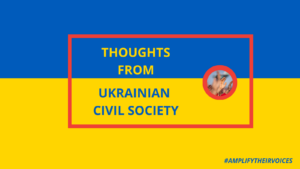Ukraine must ensure that the country’s politics is not poisoned by a triumph over Russia since victory will understandably create hype, and a sense of pride, argues Oleksandr Danylyuk, Ukraine’s former minister of finance and co-founder of the Centre for National Resilience and Development. This will combine with the feeling that the West betrayed Ukraine by being slow and split in its military support. This powerful resentment could be exploited by political forces that want to free-ride on the reconstruction bonanza. They will be more interested in lining their own pockets than in rebuilding the country, he writes for The Economist:
But millions of Ukrainians may be happy to live in a country that defeated a powerful historical adversary and one that advances every day. Ukraine could even become a role model for democratic reforms in other countries in the region which are now constrained by Russia, such as Moldova, Georgia, Belarus, Armenia and Kazakhstan. Maybe we will even inspire Russia itself one day.
The 20th century left a bitter taste in the mouth about nationalism. But the Ukrainian-style nationalism on display today is not only compatible with, but strongly supportive of, liberal democracy, argues Marc F. Plattner, the founding co-editor of the Journal of Democracy and a distinguished nonresident fellow at the National Endowment for Democracy’s International Forum for Democratic Studies.
Given the protean character of nationalism, it is difficult to generalize about it. There is no doubt, however, that the Ukrainian-style nationalism we see today is not only compatible with but strongly supportive of liberal democracy, he writes for American Purpose:
 To succeed, liberal democracies must enjoy the support and even devotion of their citizens, especially in times of crisis. While some prominent political scientists argue that democracy is bolstered by the global spread of “post-materialist values” (self-expression, autonomy, gender equality, environmentalism, and the like), the Ukrainians are demonstrating that it also requires another set of values—selflessness, a commitment to the common good, self-restraint, and courage. These old-fashioned virtues can be powerfully promoted by nationalism. RTWT
To succeed, liberal democracies must enjoy the support and even devotion of their citizens, especially in times of crisis. While some prominent political scientists argue that democracy is bolstered by the global spread of “post-materialist values” (self-expression, autonomy, gender equality, environmentalism, and the like), the Ukrainians are demonstrating that it also requires another set of values—selflessness, a commitment to the common good, self-restraint, and courage. These old-fashioned virtues can be powerfully promoted by nationalism. RTWT
“The future of the free world will depend on the fight against Chinese imperialism, against Chinese communism and Russia must be our ally,” says Garry Kasparov (above). “And I think this is a very good chance and that’s why winning this war in Ukraine and making sure that Putin regime will collapse, that’s the best hope for the free world that the 21st century will not see another cold war with unpredictable result, but rather will lead us to another a new trend,” he tells Gerard Baker’s Free Expression.
Autocrats may believe that financial exposure to their authoritarian regimes will make democracies afraid to stand up for their values. We need to prove them wrong, Paul Krugman writes for The New York Times. And what that means in practice is both that Europe must move quickly to cut off imports of Russian oil and gas and that the West needs to supply Ukraine with the weapons it needs, not just to hold Putin at bay, but to win a clear-cut victory.
 Daniel Fried, who served as the coordinator for sanctions policy throughout Barack Obama‘s second term as president, has been impressed with the pressure campaign that the current administration in Washington has organized thus far, Newsweek reports.
Daniel Fried, who served as the coordinator for sanctions policy throughout Barack Obama‘s second term as president, has been impressed with the pressure campaign that the current administration in Washington has organized thus far, Newsweek reports.
“The Biden team did an excellent job of coordinating with the Europeans in the run-up to the invasion,” says Fried, a National Endowment for Democracy (NED) board member. They were ready immediately to levy sanctions on Russian financial institutions and influential individuals. Now the question is: as Russia continues its aggression, where do you go from here? How do you handle Russian energy exports? With sanctions, it usually helps to follow the money, and for Russia, oil and gas is where the money is.”
Democracies around the world should hear the missile attacks on Ukraine as a loud call to reform and redouble efforts to demonstrate the power of democracy to the world, argues Seema Shah, the Head of International IDEA’s Democracy Assessment Unit. That begins with a critical self-reflection about the ways in which democracy has failed to deliver in many places, including Europe—where democratic practice has stalled and even eroded.







